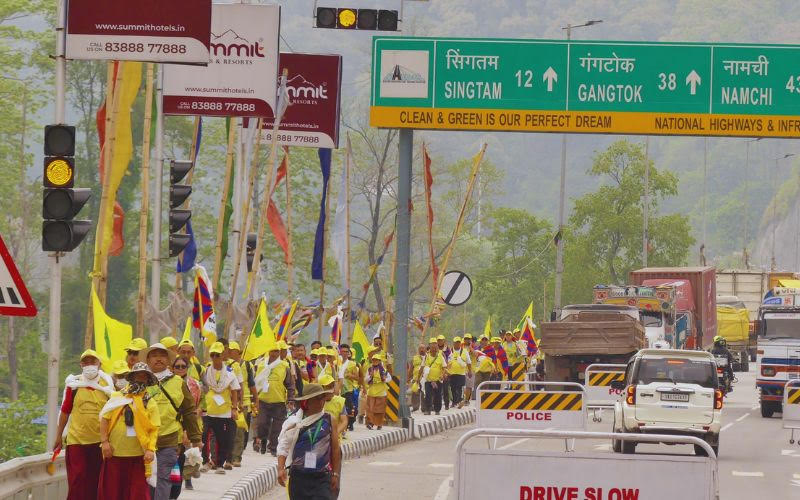Tibetan Youth Congress begins month-long march to flag human rights violations in Tibet

The Tibetan Youth Congress (TYC) has launched a month-long "Tibet Matters March" from Gangtok (Sikkim) to Tezpur (Assam) recently to bring to the notice of the world the human rights violations in Tibet under China.
The march involves over 80 volunteers from the regional chapters of TYC in India and Nepal, according to Delhi-based advocacy and policy research group Tibet Rights Collective (TRC).
The President of TYC, Gonpo Dhundup, stated that the march was initiated to commemorate the forced signing of the “Seventeen-Point Agreement” by Tibetan delegates with China on May 23, 1959, which ultimately led to China's occupation of Tibet.
During the march, TYC activists demanded that world leaders and China take necessary actions to address the Sino-Tibet conflict. They requested the G20 leaders to raise the issue during their summit in September 2023. They also demanded the Chinese government to immediately shut down colonial boarding schools that attack and eliminate Tibetan culture and identity, and address the deteriorating human rights situation under its repressive rule in Tibet, according to the TRC website.
The TYC activists emphasized that Tibet matters in resolving growing tensions between China and several Southeast Asian countries as almost 2 billion people depend on freshwater resources originating from the Tibetan plateau. The continued exploitation of Tibetan landscape, ecosystem, and natural resources by China will have long-lasting negative consequences for downstream countries.
The TYC activists also raised concerns about the Chinese colonial education system, which has separated over one million Tibetan children from their families and forced them into Chinese state-run boarding schools. This is a genocidal policy aimed at indoctrinating Tibetan children from their cultural roots, they said.
The activists also criticized the Chinese massive surveillance system, which collects Tibetan DNA samples, including children as young as five, to attack Tibetan identity and individual privacy.
The TYC stated that after more than six decades of illegal and forceful occupation, Tibet has become the world’s least-free country, sharing the bottom spot with South Sudan and Syria in Freedom House’s global freedom scores. The current human rights situation in Tibet is one of the worst in recent years, and China's repressive policies aim to eliminate the very identity of Tibetans.
In conclusion, the "Tibet Matters March" aimed to raise awareness about the Sino-Tibet conflict and urged world leaders to take necessary actions to address the issue. The TYC emphasized that Tibet matters in promoting permanent peace and security in Asia and demanded the Chinese government to address the deteriorating human rights situation and shut down colonial boarding schools attacking Tibetan culture and identity.




